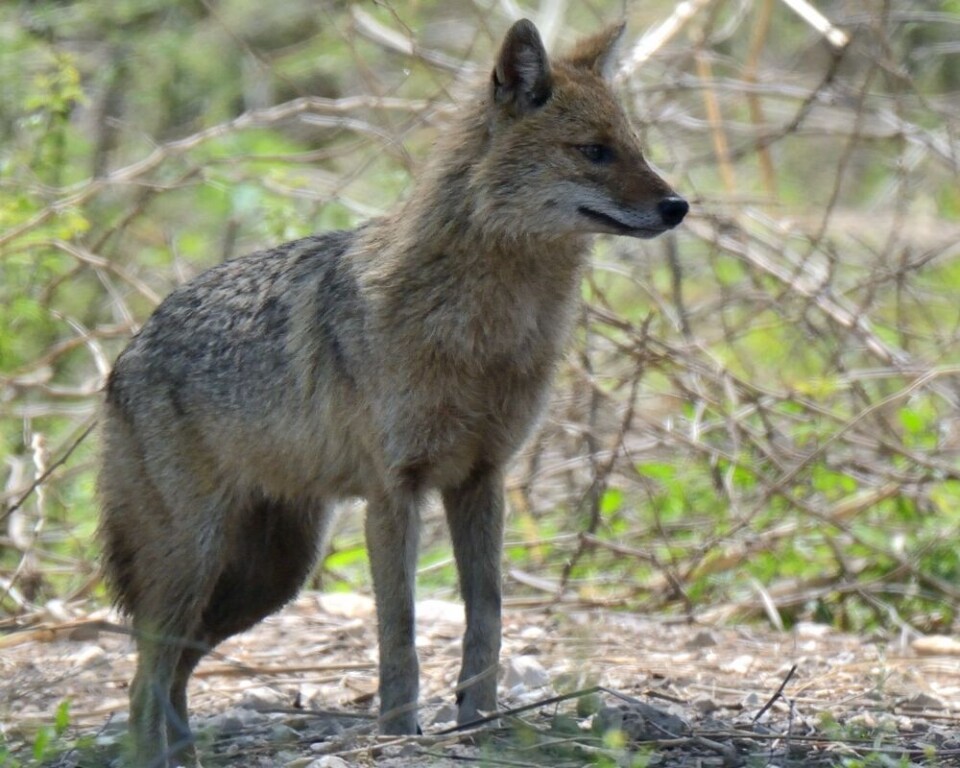-
Exotic ‘lipsticked’ song bird spreads across south-west France
Sightings and hearings of the Rossignol du Japon have caused a Facebook sensation, especially in and around the Pyrenees
-
Why we bought horses after moving to France – and what it taught us
When reader Sam Barcham, 48, moved from England to the south of France, she never anticipated that riding lessons would lead to buying three horses of her own
-
Are pet vaccines a legal requirement in France?
Certain vaccinations are mandatory before animals can travel
Young golden jackal found in France for first time
The female whose dead body was discovered by the side of a road near Marseille is thought to have been born locally, meaning the animals are reproducing here

A female jackal whose dead body was found by the side of a road in the south of France could be an indication that the animals are reproducing, which if confirmed would be unprecedented in France.
Solitary male golden jackals have been known to be present in France since 2017, but there have been no indications that the species can reproduce here until now.
Read more: Wildlife experts have spotted golden jackals for first time in France
The specimen recovered 20km west of Marseille in Ensuès-la-Redonne by the Office français de la biodiversité (OFB) in June weighed 9kg. An autopsy indicated that it was probably born in 2022 and is likely to have been struck by a vehicle.
If the animal was indeed only one year old, it is highly likely to have been born in France, since a jackal pup is unlikely to have travelled the great distance from Switzerland or Italy to Marseille.
The nearest place with a permanent jackal population is north east Italy, 500km away.
Even Geneva, in Switzerland, where jackals have been seen since 2011, is 340km from Marseille, too far for a young jackal.
According to Ursula Sterrer from the Kora Foundation, which focuses on predator ecology and wildlife management, jackals have not even been confirmed to reproduce in Switzerland yet.
“All confirmed cases have involved individual golden jackals. Whenever the gender could be determined, they were found to be males. We have not yet been able to confirm any offspring in Switzerland,” she told the European Wilderness Society.
Golden jackals, which are not dangerous to humans, fulfil a similar ecological niche to foxes. Their diet primarily consists of rodents, birds, rabbits, fruits and plants. They prefer to make their dens in dense shrubs and hunt on open grassland.
Their highly bashful nature makes observation difficult.
The OFB has reported the presence of solitary jackals in Haute-Savoie, Deux-Sèvres, Bouches-du-Rhône, Essonne, Alpes-Maritimes and Finistère based on dung, hair and fleeting video footage.
However, all of these sightings were of adults, thought to be male and detached from a family unit.
It was thought that the westward spread of the golden jackal over the past century was connected to the decline of European wolves, which have been known to kill jackals when they are perceived as competition for food.
The OFB has so far been unable to ascertain whether the increasing number of wolves in France has affected the movement of golden jackals.
Read more: Wolf numbers increase in France, rules on hunting them to be relaxed
























